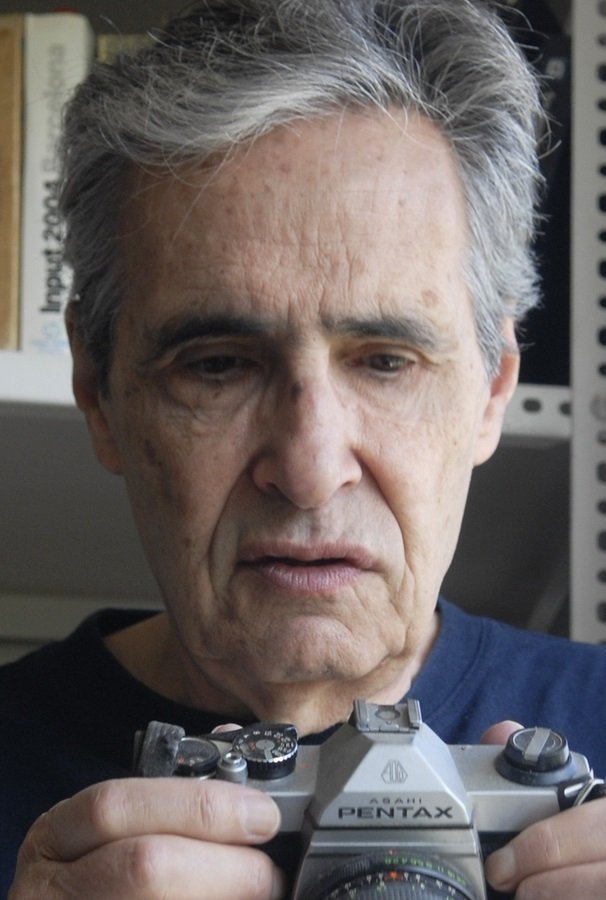
A living room, two video cameras, an armchair, two televisions and a mirror: domestic daily life in which colleagues, family and friends come together to decipher the life, personality and artistic trajectory of one of the most important actresses of Venezuelan Cinema: Hilda Vera
Mario Handler was born on November 10, 1935 in Montevideo, Uruguay. He is a renowned filmmaker and photographer, considered by many to be the pioneer of Uruguayan militant cinema. He made his debut film "Vanguardista" in 1958. Afterwards he traveled to Germany where he did an internship in scientific cinema at the IWF (Institut für den Wissenschaftlichen Film). Later, in Czechoslovakia he made a documentary called In Prague. He focused primarily on class struggles. Some of his first works are "Carlos" (1964), a film-portrait of a homeless man, "Me Gustan Los Estudiantes" (1968) and "Liber Arce, Liberation" (1969) about the student protests. In 1972 he goes into exile to Venezuela due to the imminent rise to power of the military forces and the subsequent coup. Handler's later work in Venezuela involves themes of colonial domination and cultural roots, and examinations on forms of syncretism and popular religiosity. After several years of exile, he returned to Uruguay in 1999, where he directed several feature-lenght documentaries like Aside (2002) and Broken columns (2015). In 2000 he became a professor in Audiovisual Cinema at the University of the Republic.
By browsing this website, you accept our cookies policy.